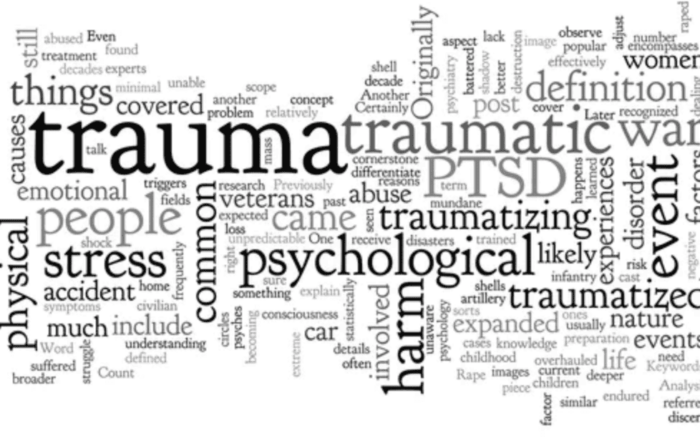Research suggests that individuals with autism experience some conditions―including underlying medical issues, neurodevelopmental differences, and mental health issues―more frequently than the general population. Learning about these potential medical needs can help you identify such conditions and have an informed discussion with your physician.

Co-occurring medical conditions can be challenging to diagnose, particularly so for patients with autism since the core symptoms and communication differences can mask specific underlying medical problems. For example, for a child suffering from severe constipation, physicians or therapists may focus on treating behavioral symptoms associated with discomfort, such as aggression, anxiety, and sleep disturbances, and prescribe anti-anxiety or antipsychotic medications, sensory interventions, or behavioral interventions strategies. Although such treatments may reduce or eliminate these challenges, the child will likely continue suffering from constipation. Unfortunately, medical conditions are not always observable, and many individuals on the spectrum cannot describe their discomfort or pain.
Common underlying medical conditions include:
- Anxiety
- Depression
- Epilepsy
- Gastrointestinal and immune function disorders
- Metabolic disorders
- Sleep disorders
Anxiety
Up to 84% of individuals with autism may suffer from anxiety (White et al., 2009), including generalized anxiety, separation anxiety, social anxiety, phobias and fears, and obsessive-compulsive disorder.
Anxiety may impair sleep and appetite and lead to irritability, repetitive movements, insistence on sameness, severe tantrums, and self-harming behavior. Recently, the Autism Research Institute was instrumental in publishing the book Understanding and Treating Anxiety in Autism (2021, Jessica Kingsley Publishers).
Learn more: watch Anxiety and Autism presented by Amy Keefer, PhD, ABPP of the Kennedy Krieger Institute.
Depression
The Center for Disease Control estimates that depression affects about 26% of people with autism compared to 7% of the general population.
There may be many reasons for a connection between autism and depression, such as social isolation, social comparison, and dysregulated emotions.
Common signs of depression include:
- low mood
- weight and appetite changes
- sleep disturbance
- suicidal ideation
- and self-injury
Many symptoms, including sleep disturbance, self-injury, social withdrawal, lack of eye contact, and flat affect, overlap with autism. This similarity of symptoms can mask depression in children and adolescents with autism. Challenges of diagnosis: Communication challenges can make self-reporting of symptoms difficult.
Learn more: watch Depression and ASD: What are the signs, symptoms, and considerations for treatment?
presented by The Johnson Center for Child Health and Development.
Epilepsy
pilepsy may affect up to 35% of people with autism versus 1% in the general population. Some types of seizures are difficult to identify, such as subclinical seizures. In contrast, other episodes, such as complex partial seizures, are associated with staring into space, engaging in repetitive behaviors, and having difficulty controlling motor movements.
Like individuals without autism, epilepsy symptoms are most likely to appear during adolescence. Some young adults develop them around the ages of 18 or 19 years. While some children with seizures do grow out of them, there is limited research about how common this is among children with autism.
Learn more:
Watch A neurologist’s Perspective on Epilepsy Assessment and Care, Parts 1 and 2, and Epilepsy Case Studies―complimentary CME credits available for medical professionals
Read A Review of Traditional and Novel Treatments for Seizures in Autism Spectrum Disorder: Findings from a Systematic Review and Expert Panel.
Gastrointestinal
Children with autism may be up to four times more likely to suffer from gastrointestinal issues than the general population. Common GI disturbances include abdominal pain, chronic constipation, colitis, diarrhea, flatulence (excessive gas), gastroesophageal reflux disease (GERD), and irritable bowel syndrome.
Signs of GI distress may include anxiety, sleep disorders, and irritability in addition to stereotyped posturing, aggression, and self-harming behavior.
Parents and caregivers can help by being attentive to the timing and characteristics of the individual with autism’s bowel movements. Consult with an expert if you suspect your child may be suffering from one or more GI problems.
Learn more: Watch The Role of Neurotransmitters in GI Disorders Related to Autism presented by gastroenterologist Kara Margolis, M.D.
Metabolic Disorders
Some metabolic disorders may be associated with autism, including mitochondrial disorders and folate abnormalities. The incidence of mitochondrial disease is approximately 7% in the general population but may be higher in individuals with autism. Those with mitochondrial dysregulation are more likely to experience cardiomyopathy, seizures, digestive problems, motor delays, and difficulty walking.
Research has also documented dysregulated folate metabolism. Some research suggests evidence of blockages in folate pathways in children with autism, which may be a result of polymorphisms in their folate genes.
Sleep Disorders
Between 50% to 80% of children on the autism spectrum may experience one or more sleep problems. These include difficulty falling asleep, night waking, waking too early, and poor sleep quality. Causes of sleep disturbances may include:
- GI distress.
- Heightened nervous system arousal.
- Chronic discomfort or pain.
- Sensory sensitivities.
- Side effects of medications.
Learn more: watch, Sleep Issues and Autism, presented by Beth Malow, M.D. of Vanderbilt University.
Individuals with autism may suffer from chronic discomfort or pain if underlying medical conditions are left untreated. In some cases, these conditions may worsen and lead to further complications. Caregivers and clinicians should work with individuals and their families to detect and treat such co-occurring conditions.
Treating Autism and Related Conditions in Adults
1 pm Eastern time, Wednesday, February 26, 2025 ARI board member Robert Hendren, DO, discusses approaches for appropriately supporting symptoms of Autism and related conditions in adults. The
Wellbeing Wins: Integrating Positive Psychology into the Autism Community
Free webinar at 1 p.m. Eastern time (US), Wednesday, September 25, 2024 About the speaker: Patricia Wright, PhD, MPH, is Executive Director of Proof Positive: Autism Wellbeing Alliance.
Autism and Sleep – Research Updates
Dara S. Manoach, Ph.D., discusses research updates on autism and sleep. She outlines aspects of a good night’s sleep and emphasizes the role of sleep cycles in cognition, memory, and learning.
“School distress” rates are elevated among those with autism
Rates of “school distress”—or significant emotional distress related to attending school—are significantly elevated in children with autism spectrum disorders (ASD), according to a new study from the United Kingdom. Sophie Connolly and
“School distress” rates are elevated among those with autism
Rates of “school distress”—or significant emotional distress related to attending school—are significantly elevated in children with autism spectrum disorders (ASD), according to a new study from the United Kingdom.Sophie Connolly and colleagues
Sexual Victimization in Autism
In this article: Chronic maltreatment and sexual victimization Trauma and quality of life Risk Factors What can we do? A safer future Resources Despite evidence to the contrary, misperceptions of autistic






